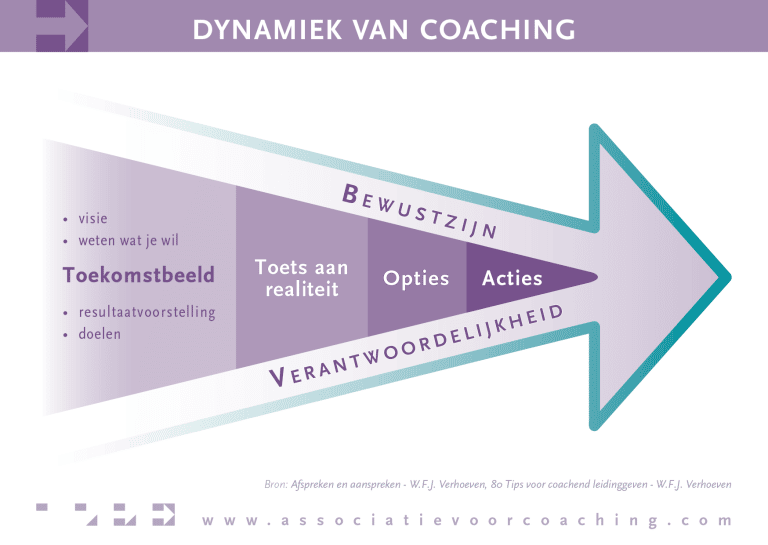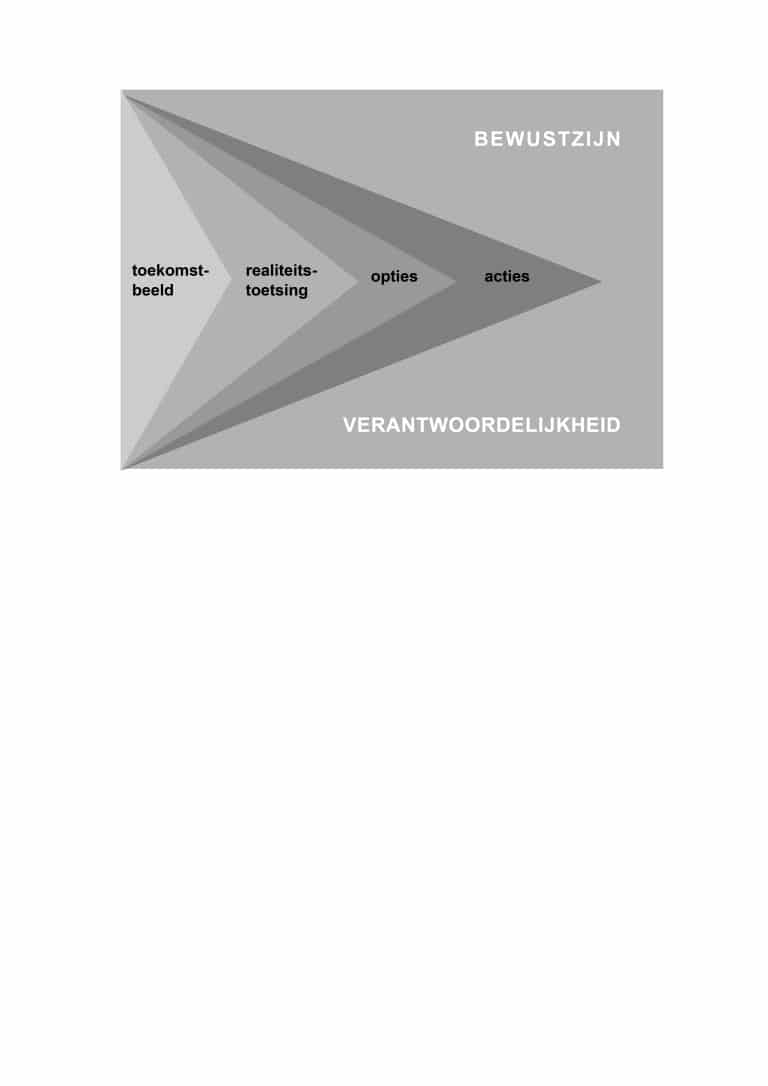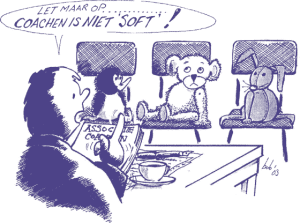
The logo of the Association for Coaching is formed by 4 arrows. Each arrow has a clearer shape, and is better framed each time. Those who think that this is a randomly chosen layout are wrong. This logo depicts the dynamics of coaching, as we have viewed it since the Association was founded. The coaching process was visualised by our founder Willem Verhoeven in the so-called TROA arrow. TROA stands for Future Image –> Reality –> Options –> Actions. We use this model, which we will discuss in more detail in the article below, as a standard in our coach training programmes. The coaching process is rolled out from here.
Coaching is all about self-direction. Self-steering consists of two important qualities. These are the elements on the top and bottom of the arrow. 1. Awareness 2.
In this article, we will look more closely at all the elements of the TROA model, which together symbolise the dynamics of coaching.
(The text continues below the image)

BEWARE
Consciousness is an important quality for self-management. It is about developing awareness of yourself, your qualities, your weaknesses, your obstacles, the things you like to do, your ambitions, your fears and so on. But also awareness about your relationship with the environment, what do you see happening there, what does it mean, does it suit you, do you feel you can influence it?
RESPONSIBILITY
Taking responsibility is the second cornerstone of self-steering. Self-steering involves active design-oriented action and not merely reacting to the environment. Do you allow yourself to live through the environment or do you exert influence on that environment? Do you act mainly as a puppeteer or as a marionette? Dependency manifests itself in two ways. Some people are always extremely cooperative. And sometimes this goes so far that there is a loss of identity. In the final analysis, their fate is constantly determined by others. Another manifestation of dependency is what psychology calls counter-dependency. It manifests itself in protest behaviour. People who are continually opposed to others. They are constantly ‘against’, but when you ask them what they are ‘for’, the story often falters.
VISION OF THE FUTURE (VISION)
Acting is goal-oriented. There is no good wind for a sailor who does not know where he wants to go. This is where the issue of vision and inspiration comes into play. The more concrete the images of the future that you want to shape, the easier it will be. Choosing is the key word. When you have 100 priorities, you have none.
REALITY CHECK
This is where self-knowledge comes into play. If you want to be successful, it is better to focus on the things you are good at and enjoy doing. That is where you can become excellent. If you put your energy into things you are not good at, you will at best become mediocre and then you will not distinguish yourself. What are your own qualities, do they match your ambitions?
OPTIONS AND ACTIONS
A good idea is a realised idea. Realising your vision with the qualities you have requires a lot of perseverance and self-discipline. In order to realise your goals, you sometimes have to do things that you don’t really like. How do you summon the energy to do them? How can you create self-motivating circumstances? How to avoid self-punishment?
The TROA model also refers to various competences for profiling or for development during the process. Below are a number of key questions that could be asked at competency level in the various phases of the TROA model:

The Association for Coaching has also developed handy coaching cards from the TROA model. On the back of these cards are 23 coaching questions (divided over the 4 phases of the process: Future vision – Reality – Options and Actions) that you can use in everyday practice to support your coaching conversations. The cards are for sale for € 1,50 each. Look for them in our webshop under Books.
Onze Certified Professional Coach Opleidingen
Below you will find the different Certified Professional Coach programmes and you can click through for more information or to register for the programme. If you first want to get to know one of our trainers and maybe have some questions answered, you can also choose for a personal interview.



